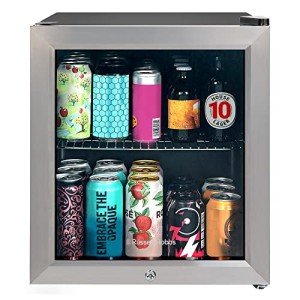The 10 Worst Temperature-Controlled Fridges Mistakes Of All Time Could Have Been Prevented
The Importance of Temperature-Controlled Fridges in Various Industries
Temperature-controlled fridges are an essential part in numerous markets, including healthcare, food and beverage, pharmaceuticals, and laboratories. These specialized refrigerators are designed to maintain a constant temperature, which is important for keeping sensitive items, samples, and compounds. In this post, we will check out the various kinds of temperature-controlled fridges, their applications, and the advantages they use.
What are Temperature-Controlled Fridges?
Temperature-controlled fridges, likewise referred to as accuracy refrigerators, are developed to keep an exact temperature level range. Frydge are equipped with sophisticated temperature control systems, which can be set to specific temperature levels, and are designed to minimize temperature fluctuations. These fridges are offered in numerous sizes, from small, compact systems to big, walk-in models.
Kinds Of Temperature-Controlled Fridges
There are a number of types of temperature-controlled fridges, each created for particular applications:
- Laboratory Refrigerators: These fridges are developed for laboratory settings and are typically used to keep biological samples, vaccines, and other temperature-sensitive materials.
- Pharmaceutical Refrigerators: These fridges are developed for keeping pharmaceutical products, including medications, vaccines, and other temperature-sensitive compounds.
- Medical Refrigerators: These fridges are developed for medical settings and are usually used to save medical supplies, consisting of vaccines, blood, and other temperature-sensitive products.
- Food and Beverage Refrigerators: These fridges are designed for food and beverage applications, consisting of dining establishments, coffee shops, and catering services.
- Industrial Refrigerators: These fridges are developed for commercial applications, consisting of food processing, manufacturing, and storage.
Applications of Temperature-Controlled Fridges
Temperature-controlled fridges have various applications across various markets:
- Healthcare: Temperature-controlled fridges are used in healthcare facilities, clinics, and health care facilities to keep medical materials, consisting of vaccines, blood, and other temperature-sensitive products.
- Food and Beverage: Temperature-controlled fridges are utilized in restaurants, cafes, and catering services to save food and drinks at precise temperature levels, ensuring food safety and quality.
- Pharmaceuticals: Temperature-controlled fridges are used in pharmaceutical production, storage, and distribution to keep the quality and effectiveness of medications and vaccines.
- Laboratories: Temperature-controlled fridges are utilized in labs to keep biological samples, vaccines, and other temperature-sensitive products.
Benefits of Temperature-Controlled Fridges
Temperature-controlled fridges offer numerous benefits, including:
- Precision Temperature Control: Temperature-controlled fridges supply exact temperature control, which is important for keeping delicate items, samples, and compounds.
- Increased Safety: Temperature-controlled fridges guarantee the safe storage of temperature-sensitive materials, decreasing the danger of contamination and wasting.
- Improved Quality: Temperature-controlled fridges maintain the quality of products, samples, and substances by saving them at accurate temperatures.
- Regulative Compliance: Temperature-controlled fridges help organizations abide by regulatory requirements for the storage of temperature-sensitive materials.
- Energy Efficiency: Temperature-controlled fridges are designed to be energy-efficient, lowering energy intake and expenses.
Features to Consider When Choosing a Temperature-Controlled Fridge
When choosing a temperature-controlled refrigerator, consider the following features:
- Temperature Control: Look for a fridge with innovative temperature level control systems, including digital temperature display screens and alarms.
- Insulation: Choose a refrigerator with top quality insulation to reduce temperature level variations.
- Shelving: Consider a fridge with adjustable shelving to accommodate different sizes and kinds of containers.
- Humidity Control: Look for a refrigerator with humidity control features to preserve optimum humidity levels.
- Security: Choose a refrigerator with safe locking systems to prevent unauthorized access.
- Monitoring: Consider a fridge with remote monitoring abilities to track temperature and humidity levels.
- Upkeep: Look for a fridge with easy upkeep features, consisting of exchangeable filters and cleaning systems.
Often Asked Questions
Q: What is the distinction in between a temperature-controlled fridge and a standard fridge?
A: A temperature-controlled refrigerator is created to maintain an accurate temperature level variety, while a basic refrigerator is created for general-purpose storage.
Q: What are the advantages of using a temperature-controlled fridge in a laboratory setting?
A: Temperature-controlled fridges in laboratory settings provide exact temperature level control, increased safety, improved quality, and regulatory compliance.
Q: How do I pick the right temperature-controlled refrigerator for my organization?
A: Consider elements such as temperature control, insulation, shelving, humidity control, security, tracking, and maintenance when choosing a temperature-controlled fridge.
Q: Can temperature-controlled fridges be utilized for keeping food and drinks?
A: Yes, temperature-controlled fridges can be utilized for keeping food and drinks, especially in restaurants, coffee shops, and catering services.
Q: Are temperature-controlled fridges energy-efficient?
A: Yes, temperature-controlled fridges are developed to be energy-efficient, decreasing energy usage and expenses.
In conclusion, temperature-controlled fridges are vital components in different markets, supplying exact temperature control, increased safety, improved quality, and regulative compliance. When selecting a temperature-controlled fridge, think about functions such as temperature control, insulation, shelving, humidity control, security, tracking, and maintenance. By picking the right temperature-controlled fridge, organizations can guarantee the safe and efficient storage of temperature-sensitive materials.
